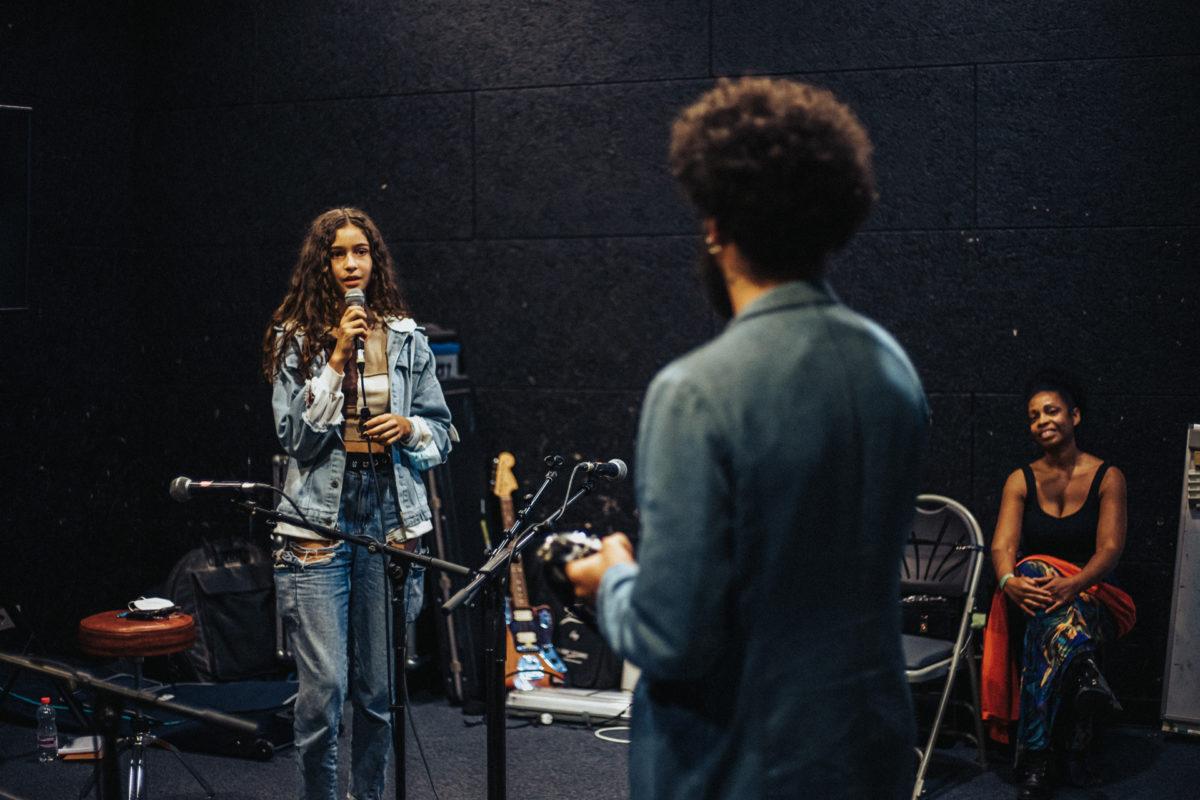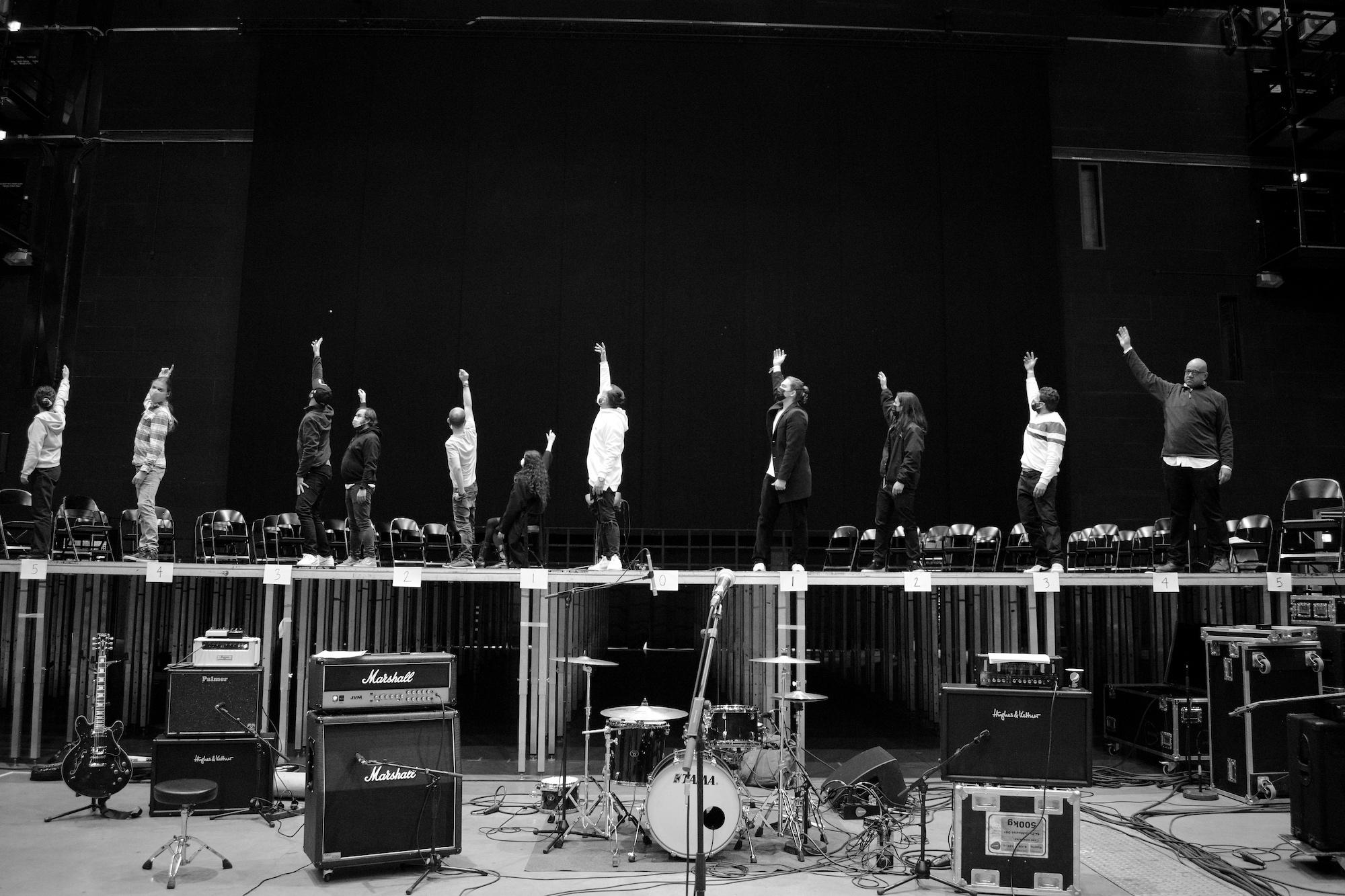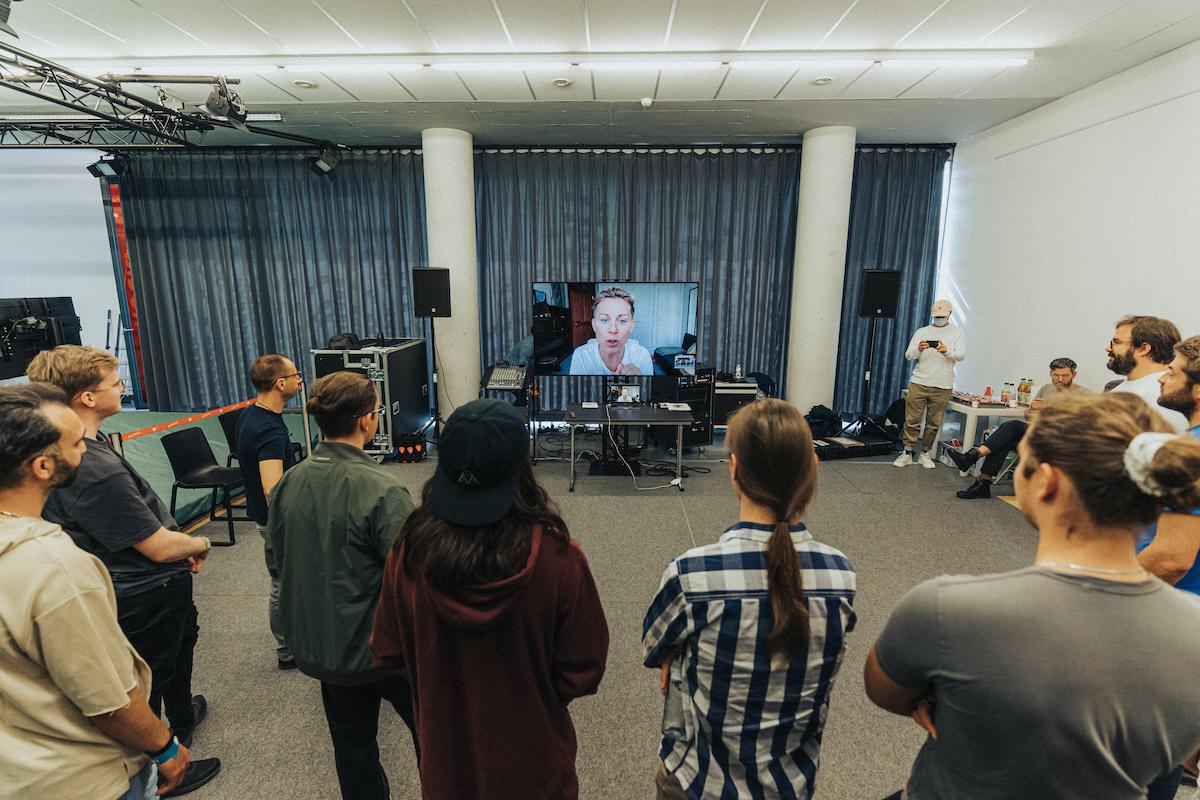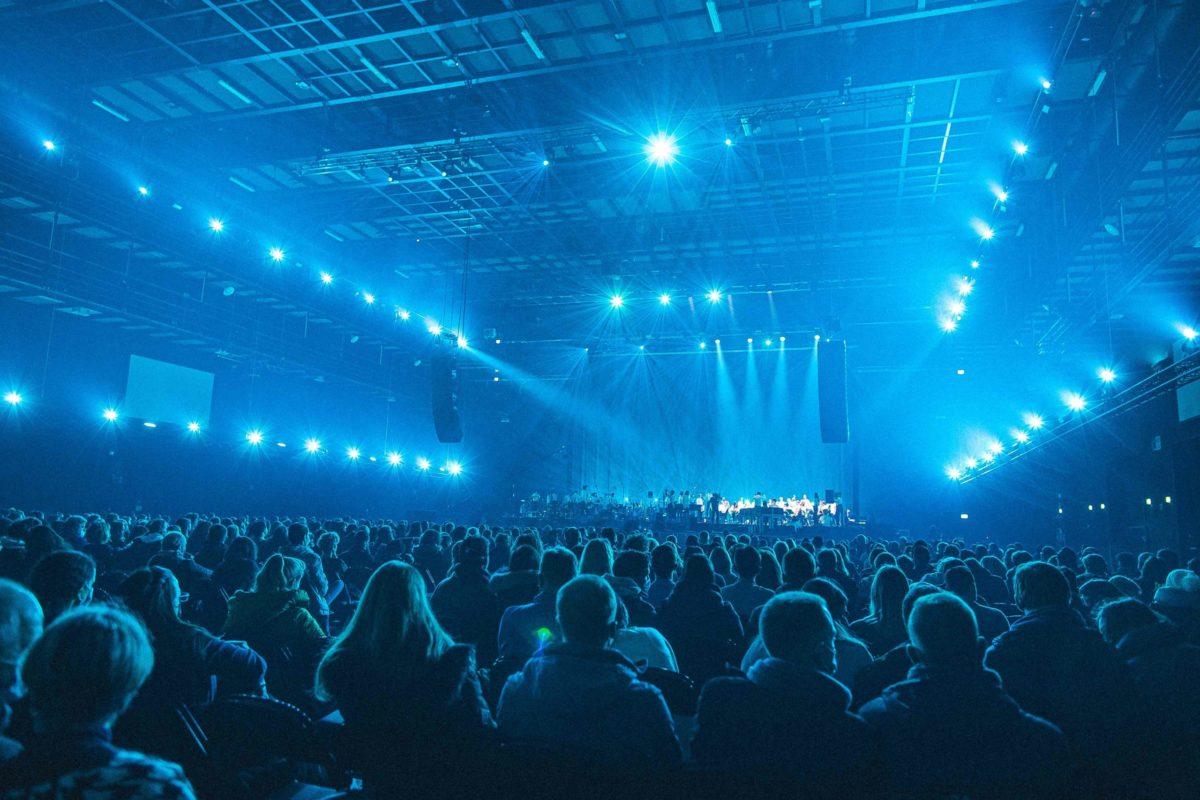Wir benutzen Cookies auf unserer Seite. Einige von denen sind essentiell, während andere uns helfen eure Experience zu verbessern.
Shaping Europe’s Future Frequencies
A conversation with workshop mentors Frank Wiedemann and Matthew Herbert
A conversation with workshop mentors Frank Wiedemann and Matthew Herbert
An instrumental part of the
With this aim in mind, bold, effective, and forward-thinking collaboration was a must in carrying out this music production and composition workshop — and few contenders were likely to live up to the task better than established European electronic music producers Frank Wiedemann and Matthew Herbert.
While coming from different backgrounds — Wiedemann co-founded the Berlin-based Innervisions label, and operates as one half of the world-renowned house music duo Âme, while Herbert has decades of pioneering avant-garde experimental music composition and production under his belt— the two minds collide in their insatiable creative curiosity, and refusal to settle for accepted norms. This year, they’re joining forces in their shared passion and desire to embolden the region’s artistic voices of tomorrow, be they in songwriting, composing, mixing, performing or producing. Keep your ears open and eyes peeled: no idea is too wild, and no concept too bold.
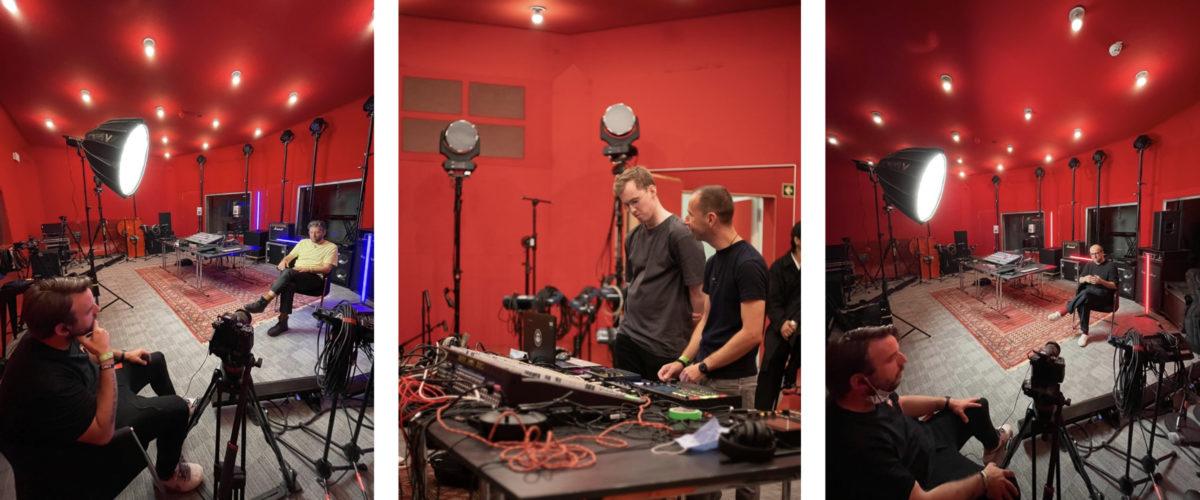
How did you first come across each other’s work, and why would you say that your collaboration on the Future Frequencies project is a pairing that works?
Matthew Herbert (MH): I’ve known Frank’s music for many years — it’s what first ignited my excitement at the opportunity of working together on something we both agree is essential: encouraging the next generation’s creative expression and collaboration.
Frank Wiedemann (FW): Matthew’s body of work has been one I’ve admired for ages — his broad experience working with all types of ‘musical’ content, along with his taste made me feel like I couldn’t have found a better partner for the Future Frequencies workshop.
In your own words, could you describe the mission and format of Future Frequencies, and what most excites you about the project?
MH: The mission is simply to create something amazing.
FW: We’d like to empower the courage of free, unbridled creative and artistic expression — and the joy that comes with sharing it with the world.
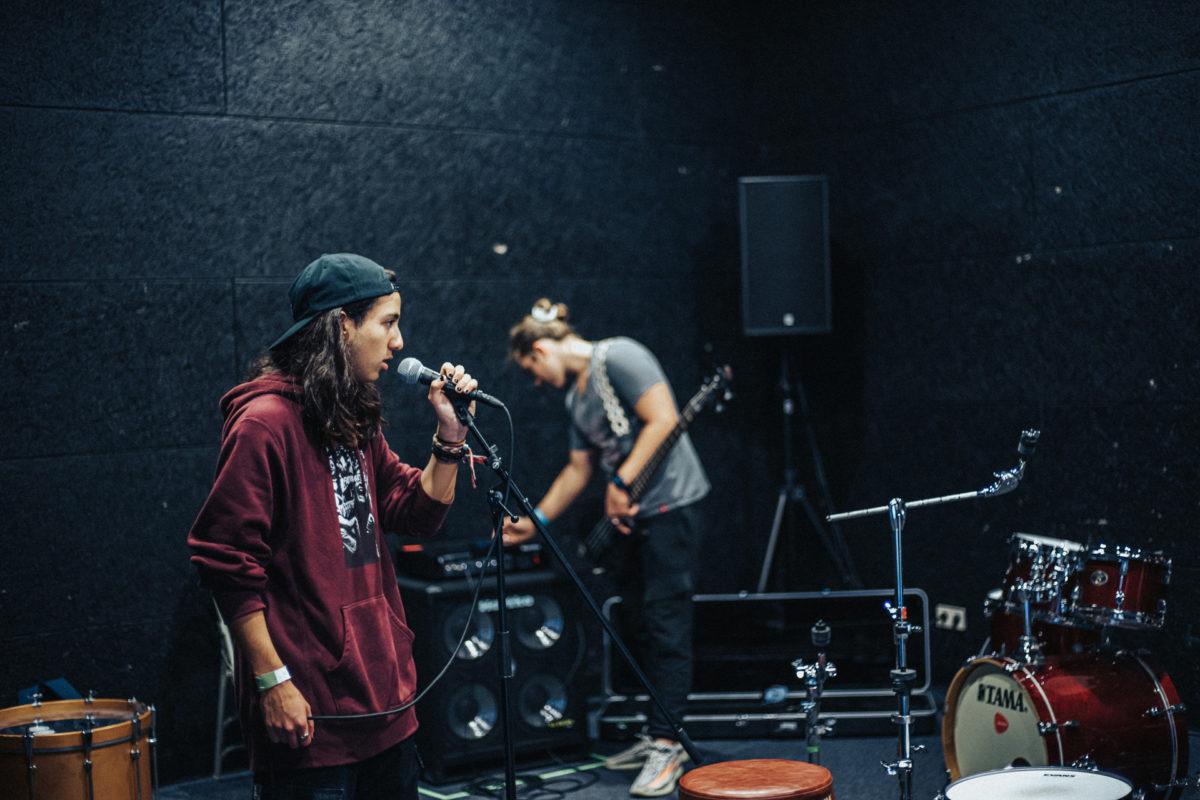
What, in your view, where does the untapped potential of Europe’s contemporary music lie — and what do you hope to spot, finesse and boost via the Future Frequencies workshop specifically in the Esch-sur-Alzette region?
MH: It’s hard to answer, as we haven’t really gotten started yet — but I’m hoping to hear music bearing the marks of different regional musical styles. Something we haven’t heard before.
FW: I don’t think this is specific to Europe. Talent exists everywhere, it just needs to be unearthed, heard or seen. That’s what we hope to help the region achieve.
In your view, how can participants directly benefit from this experience?
MH: For a somewhat emerging musician, performing in front of several thousands is a big opportunity. That, along with the chance to collaborate with musicians working across different styles and genres.
FW: What we hope to offer is the experience of being a part of a musical community which is about opening your mind up to different musical styles, techniques, and experimentation… eventually letting the participants create their own standalone piece, together.
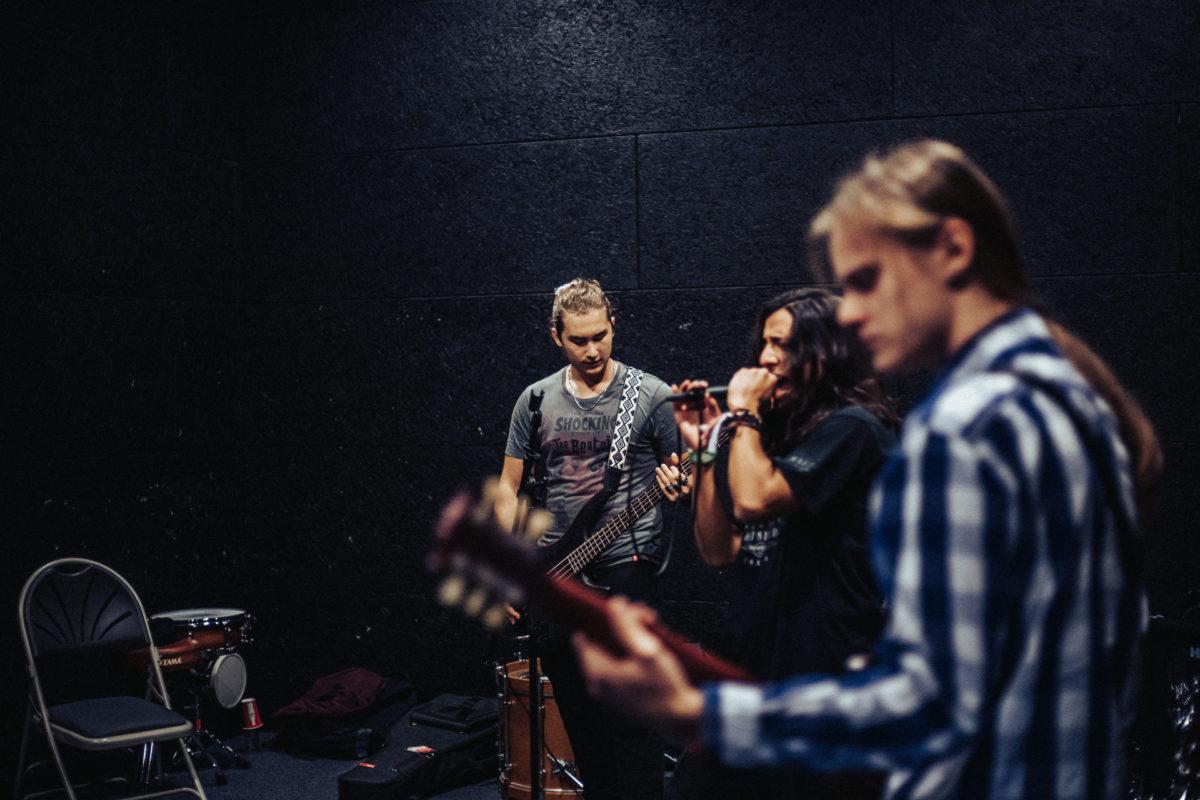
At this stage in your respective careers, what are your approaches to creating music — how have they evolved, how do they align, how do they differ, and why are they a good mix?
MH: I’m interested in the storytelling capacity of sound — any kind of sound. For instance, a piece of music made using the sounds of your grandmother’s kitchen will carry more weight and context than a piece of music made using a guitar. This isn’t to say one is necessarily better than the other, but it does show that the materials and tools that can be used to make music have changed in a multitude of ways, opening up a wealth of new possibilities.
FW: I’m very grateful for the place I’ve reached, and take none of it for granted — but staying curious and creatively alert remains vital. This curiosity is, among other things, what connects Matthew and I, and fuels the excitement of this collaboration. What lessons are you most excited to share with the diverse musicians and composers of Luxembourg from your career, approach, and experience?
MH: I suppose they’ll have to come and see!
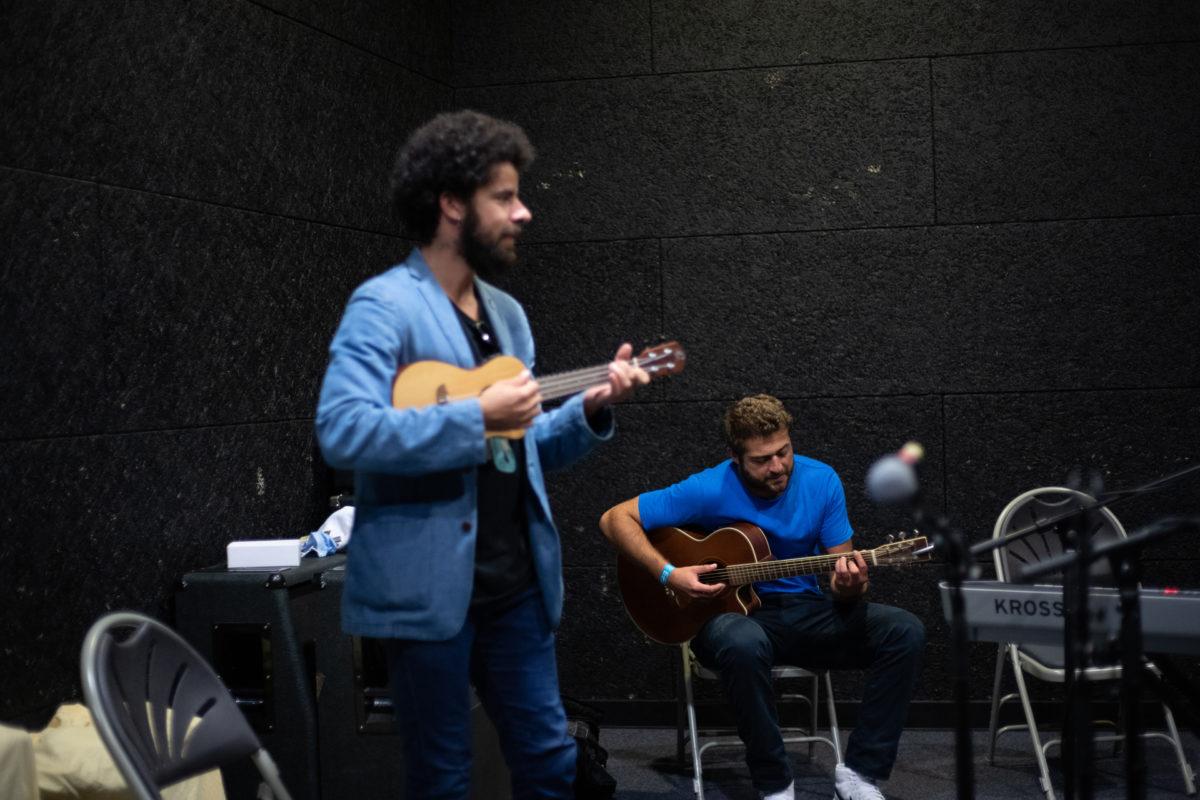
Which particular aspect of the interaction with the participants are you looking forward to the most — coaching, writing, exchanging ideas, composing…?
MH: For me, the fun part is trying to find a musical thread that links all the different styles together into one coherent concert.
FW: It’s always interesting to see what happens when you encourage someone to find their own unique way of expressing their artistic vision. With Future Frequencies, we are aiming to do this on quite a big scale.
How will the audiences, and region be able to experience the result of this workshop?
MH: There will be a concert in the opening ceremony — but more broadly speaking, we hope to leave a meaningful legacy in the shape of new connections binding the disparate parts of the Esch2022 musical scene.
FW: We’ll indeed be creating a show together with the participants that will be presented at the opening ceremony of the Esch2022 year. That’s quite exciting. It will be an opportunity for every participant to not only be a part of but also represent the musical scene of their region.
Future Frequencies is part of the Esch2022 REMIX Festival –
Want to get the latest updates? Then, follow us on
Related
Future Frequencies: Are you the artisan of tomorrow’s experimental soundscape?
Apply to the Future Frequencies workshop under the mentorship of European electronic music heavyweights Frank Wiedemann and Matthew Herbert.
Inside Esch2022’s Future Frequencies
The workshop’s participants discuss the power of creative innovation, and shaping the soundscape of tomorrow
How does the sound of a region sound like? Our Future Frequencies initiative has the answer
We are offering our new format Future Frequencies to other cities and regions that want to discover, support and sustain their up-and-coming musicians.
Stay in Touch
Sign-up to the Battle Royal Studios newsletter to keep up to date with our latest news, jobs and VIP invites.
Battle Royal GmbH
Glogauer Strasse 17
10999 Berlin
Germany
With representation in
London • Dubai • Riyadh • Sydney


